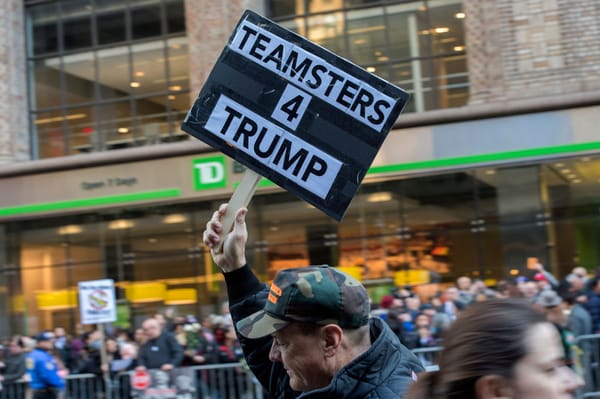Last week, Donald Trump met with the Teamsters Union to seek their endorsement. This was in itself a significant development, since, as Politico notes, “the Teamsters have not done an endorsement interview process with candidates from both parties or independents before.” Although the Teamsters endorsed Ronald Reagan twice and George H.W. Bush once, in the three decades since then they have backed Democratic candidates in every presidential election. Given the general alignment of unions with the Democrats, it is unusual both for them to grant a Republican contender an interview and for that contender to seek one.
Trump’s possible rapprochement with a union that endorsed his opponents in the previous two presidential cycles is a sign of the larger realignment happening in American politics. For generations, the working class voted for Democrats, which was seen as the party of labor, while the GOP was the party of the affluent, of big business and tax cuts. But over the past 40 years, the Democrats became the party of the credentialed elites and the dependent poor—and increasingly, of the wealthy. Data from the 2022 midterm elections showed that 9 out of the 10 wealthiest congressional districts are now represented by Democrats, while the GOP now holds 64 percent of districts with median incomes below the national median.
“Trump won in 2016 in part by flipping working-class votes.”
Trump won in 2016 in part by flipping working-class votes in the solidly Democratic Rust Belt, and increasingly has a lock on working-class voters of all races. By seeking the endorsement of the Teamsters, the GOP frontrunner is attempting to consolidate his status as the candidate of the working class. Party donation data back up his claim. In 2020, Bloomberg found that truckers, plumbers, machinists, painters, and construction workers—many of whom are Teamsters—were among the occupations most likely to donate to Trump. Meanwhile, Biden got the lion’s share of writers and authors, editors, therapists, business analysts, h.r. staff, and—yes—bankers.
